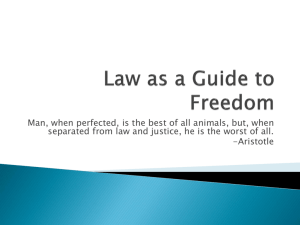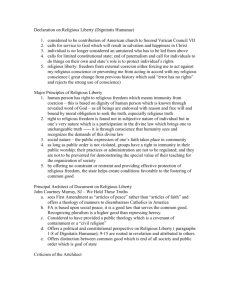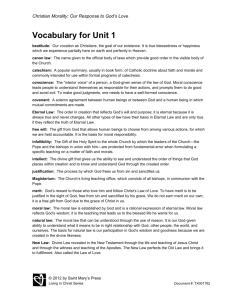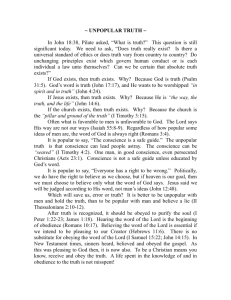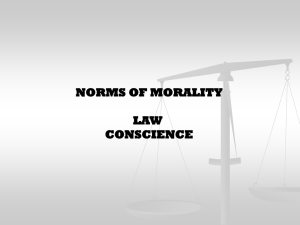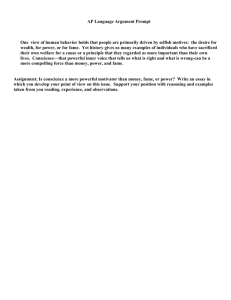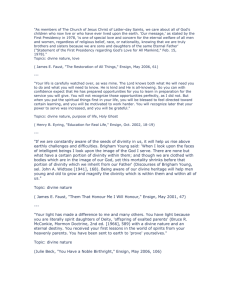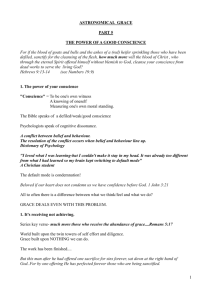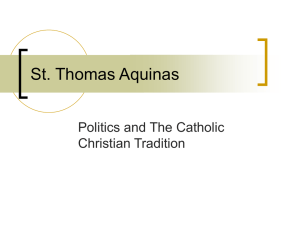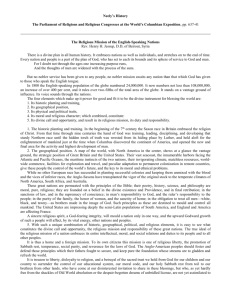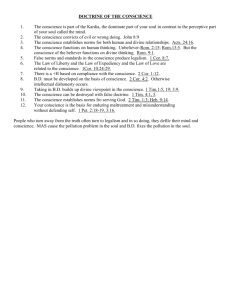Theology III --- Study Questions ---
advertisement
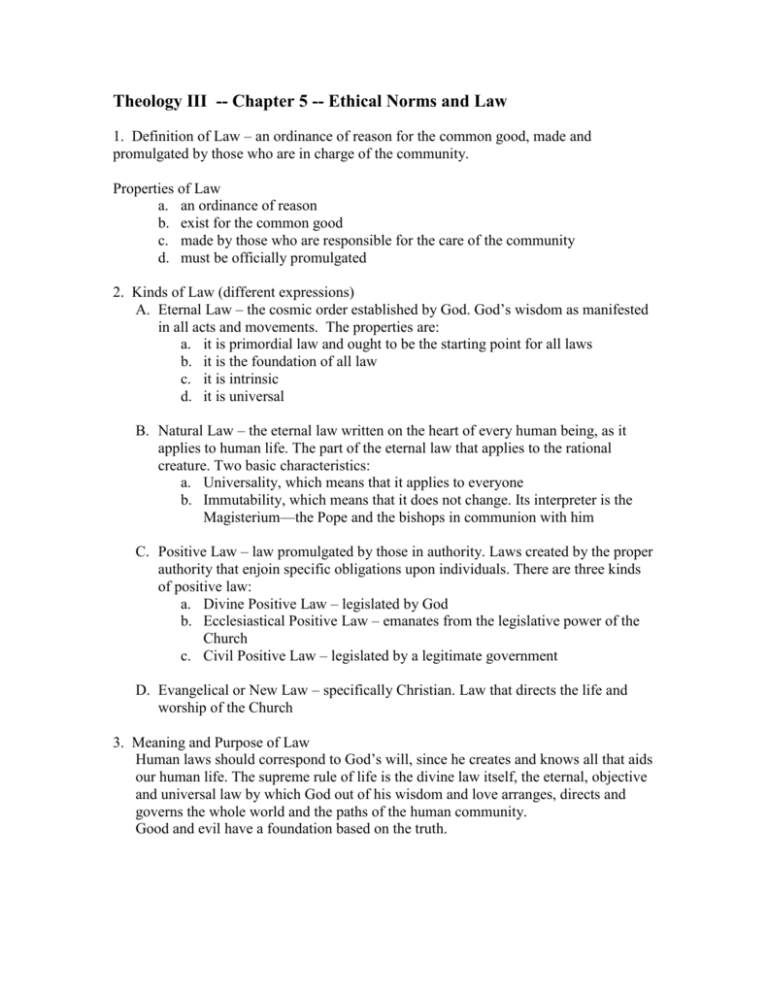
Theology III -- Chapter 5 -- Ethical Norms and Law 1. Definition of Law – an ordinance of reason for the common good, made and promulgated by those who are in charge of the community. Properties of Law a. an ordinance of reason b. exist for the common good c. made by those who are responsible for the care of the community d. must be officially promulgated 2. Kinds of Law (different expressions) A. Eternal Law – the cosmic order established by God. God’s wisdom as manifested in all acts and movements. The properties are: a. it is primordial law and ought to be the starting point for all laws b. it is the foundation of all law c. it is intrinsic d. it is universal B. Natural Law – the eternal law written on the heart of every human being, as it applies to human life. The part of the eternal law that applies to the rational creature. Two basic characteristics: a. Universality, which means that it applies to everyone b. Immutability, which means that it does not change. Its interpreter is the Magisterium—the Pope and the bishops in communion with him C. Positive Law – law promulgated by those in authority. Laws created by the proper authority that enjoin specific obligations upon individuals. There are three kinds of positive law: a. Divine Positive Law – legislated by God b. Ecclesiastical Positive Law – emanates from the legislative power of the Church c. Civil Positive Law – legislated by a legitimate government D. Evangelical or New Law – specifically Christian. Law that directs the life and worship of the Church 3. Meaning and Purpose of Law Human laws should correspond to God’s will, since he creates and knows all that aids our human life. The supreme rule of life is the divine law itself, the eternal, objective and universal law by which God out of his wisdom and love arranges, directs and governs the whole world and the paths of the human community. Good and evil have a foundation based on the truth. 4. Just Law – a law is just if it corresponds to the natural law. An ordinance of reason or the common good, corresponding to divine law and promulgated by one who has care of the community. Conditions that must be met for a law to be just: a. it must promote the common good b. the burdens that the law imposes on society must reflect an “equality of proportion” c. all use of authority is a share in God’s authority The three components of a just law (CCC, 1925): a. respect for and promotion of the fundamental rights of the person b. prosperity, or the development of the spiritual and temporal goods of society c. the peace and security of the group and its members 5. Conflicts Between Conscience and Law Conscience does not fabricate moral values but takes them from objective reality. Law offers conscience a means to detect moral good and evil. So natural law, divine positive law, the norms of the Church, and civil legislation offer the conscience a way to see what is good and evil, just or unjust. Laws that contravene the natural law and inflict injury on members of society cannot be cooperated with. A person should always be open to what has been given by just law. On the other hand, it is never permitted to follow a law that is contrary to morality as defined by reason. We are bound by conscience to resist any law that forces us to violate the natural law and prudence dictates whether or not we should resist any law that permits such violation.
